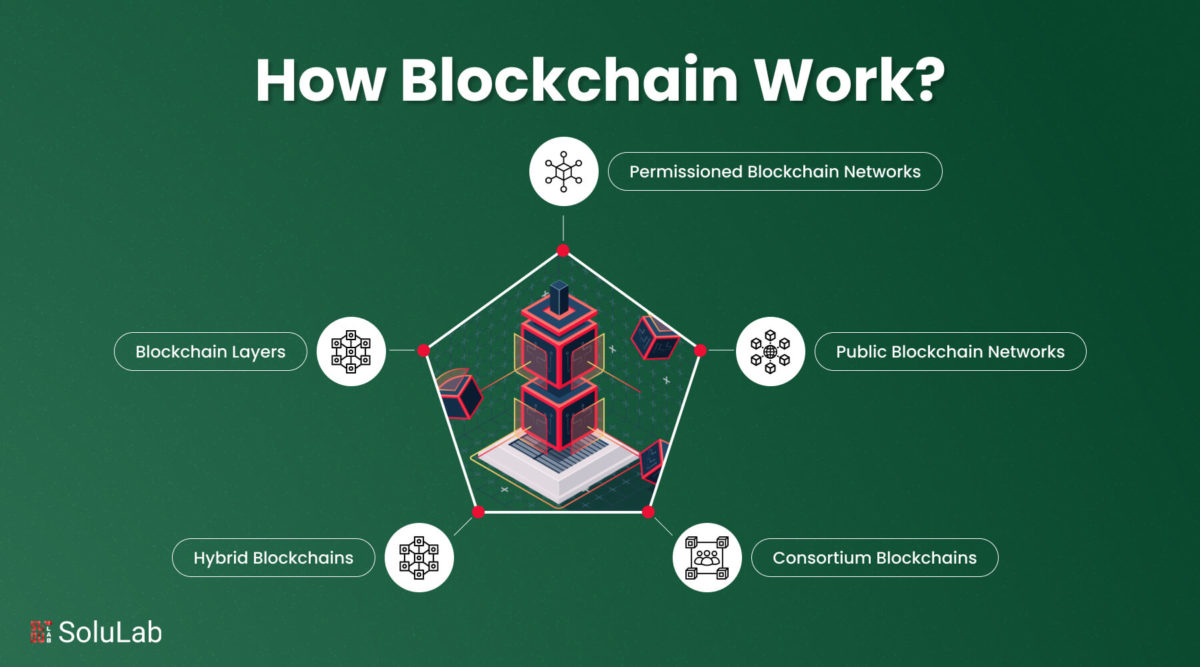What Is Blockchain and How Does It Work? sets the stage for this enthralling narrative, offering readers a glimpse into a technology that is transforming industries worldwide. Blockchain, often associated with cryptocurrencies, is much more than a buzzword; it represents a secure and transparent way of recording transactions and sharing data across a decentralized network. By understanding its fundamental principles, we can appreciate the profound impact it has on everything from finance to supply chain management.
This innovative technology enables trust and security in digital interactions, making it crucial for our increasingly interconnected world. With its roots in cryptography and its potential applications spanning various sectors, blockchain is paving the way for new opportunities and efficiencies.
The digital landscape is continuously evolving, making it imperative for individuals and businesses alike to adapt to the changes in technology and consumer behavior. As we delve into the intricacies of this digital age, we find ourselves at the crossroads of opportunity and challenge. Understanding these dynamics becomes crucial for anyone looking to thrive in today’s fast-paced environment.One of the most significant transformations in recent years has been the rise of social media.
Platforms like Facebook, Instagram, Twitter, and LinkedIn have reshaped how we communicate, share information, and connect with one another. These channels offer a unique opportunity for brands to engage with their audience directly. However, with this opportunity comes the challenge of standing out in an increasingly crowded space. Companies must develop a robust social media strategy that not only promotes their products but also fosters genuine connections with their followers.Moreover, the advent of e-commerce has revolutionized the way we shop.
Online retail has grown exponentially, with consumers now expecting seamless experiences when purchasing products or services. For businesses, this means investing in user-friendly websites, efficient logistics, and responsive customer service. The shift to online shopping has also prompted companies to rethink their marketing approaches. Search Engine Optimization (), content marketing, and pay-per-click advertising have become essential tools in driving traffic and conversion rates.In addition to social media and e-commerce, the emergence of big data has played a pivotal role in shaping business strategies.

Organizations are now able to collect and analyze vast amounts of data to gain insights into consumer behavior, market trends, and operational efficiencies. This data-driven approach allows businesses to make informed decisions that can enhance their competitive edge. For instance, by understanding consumer preferences, companies can tailor their offerings to meet specific needs, thereby increasing customer satisfaction and loyalty.However, with great power comes great responsibility.
The digital age has also raised concerns regarding privacy and data security. Consumers are becoming more aware of how their data is being used, leading to a demand for transparency and ethical practices. Businesses must prioritize data protection and ensure they comply with regulations such as the General Data Protection Regulation (GDPR) to maintain consumer trust and avoid potential legal repercussions.The impact of technology on communication cannot be overstated.
The way we interact with one another has been transformed by instant messaging, video calls, and social networking. While these tools have made it easier to stay connected, they have also influenced our relationships in profound ways. The rise of remote work, accelerated by the COVID-19 pandemic, has further emphasized the need for effective digital communication skills. Employees must now navigate virtual meetings, collaborate through digital platforms, and maintain professional relationships from a distance.As we continue to embrace these technological advancements, it is essential to consider the role of artificial intelligence (AI) in shaping the future.
AI has the potential to streamline processes, enhance customer experiences, and drive innovation. From chatbots providing instant customer support to algorithms predicting consumer behavior, AI is becoming an integral part of business operations. However, the implementation of AI also raises ethical questions regarding job displacement and decision-making processes. Striking a balance between leveraging technology and preserving human employment will be a crucial challenge for organizations moving forward.Another significant trend in the digital space is the growing importance of sustainability and corporate social responsibility (CSR).
Consumers are increasingly prioritizing brands that demonstrate a commitment to environmental and social issues. Companies that integrate sustainable practices into their operations are not only contributing to a better world but also appealing to a conscientious consumer base. This shift requires businesses to rethink their supply chains, production methods, and marketing strategies, ensuring they align with the values of their target audience.Moreover, the importance of continuous learning and adaptability in the digital era cannot be understated.
Professionals across industries must stay abreast of emerging technologies, industry trends, and consumer expectations. Lifelong learning has become a necessity, with many individuals seeking online courses, webinars, and workshops to enhance their skill sets. Organizations should also foster a culture of learning, providing employees with opportunities for growth and development. By investing in their workforce, companies can cultivate a more innovative and resilient environment.In conclusion, the digital age presents both tremendous opportunities and formidable challenges.
Embracing technology, understanding consumer behavior, and prioritizing ethical practices are essential for success in this dynamic landscape. As we navigate this ever-changing terrain, it is crucial for individuals and businesses to remain agile and forward-thinking. By doing so, we can harness the power of technology to create meaningful connections, drive growth, and contribute positively to society. The future is digital, and those who adapt will undoubtedly thrive.



